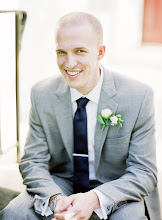Appeared in the October 2007 edition of DownBeat, an internationally circulated jazz magazine.
As a college student, Joshua Redman wasn’t much of a multitasker. The saxophonist rarely practiced when he attended Harvard University from 1987-’91—playing jazz alongside such a rigorous academic schedule just didn’t work. "I was focused on school, and I wasn’t able to carve out time for music during the school year," Redman said. "I barely touched my horn."
For Redman, music and demanding academics didn’t mesh. But a growing number of students balance musical and scholarly pursuits simultaneously, studying jazz at some of the nation’s best colleges.
One such example is Julia Brav, a Princeton senior who won an Outstanding Performance DownBeat Student Music Award in the Jazz Soloist category this year. The pianist said she wanted to combine stellar academics with a formidable jazz education, and she attends a program that’s won several DownBeat awards of its own. As expected, it’s been no cakewalk.
"The rigors of this education can be daunting and overwhelming," said Brav, who sits next to future molecular biologists and lawyers in the New Jersey university’s bands, then jets off to classes in such subjects as modern Japanese culture and number theory.
At New York University, Director of Jazz Studies David Schroeder said the difficult course work challenges jazz studies majors to do more than just develop their talent. It translates to their musicianship, instilling critical thinking skills that can beef up their playing. He beams when students coming out of philosophy classes engage with and challenge the ideas of guest artists and clinicians. He also encourages his 120 jazz students to experience the music of other cultures by studying abroad.
Rigorous academics don’t necessarily lead to better playing. "It’s not like reading Kant made me swing harder," Redman said. But superior liberal arts offerings can enrich the study of music, as when author E.L. Doctorow, who wrote Ragtime and teaches at NYU, worked with students on the musical adaptation of his novel, Schroeder said.
Although Brav has moments when the musician in her longs for a less demanding academic environment, she takes comfort in the fact that her impressive degree can sustain her if a career in music doesn’t work out. "I’ve come to accept the open-endedness that this education offers," she said.
Schroeder remembers a music/economics double major who landed a three-record deal with SteepleChase during his junior year at NYU. Days before graduation, he asked his director for a law school recommendation letter. "He’s not alone here," Schroeder said. "All these guys aspire to much more."
Carnegie Mellon University in Pittsburgh, which offers a jazz minor, mostly graduates students who seek careers in other fields. Some continue to make room in their lives for jazz—a business school graduate a few years ago took a job on Wall Street trading during the day, while continuing to play jazz gigs at night. Director of Jazz Studies David Pellow sees himself not only as a music instructor, but also as a steward of the jazz tradition for tomorrow’s movers and shakers in business and other fields. "Maybe I won’t train the next Brecker, but maybe I’ll train the next guy who’s going to open a club or create an arts center that’s going to present the music," Pellow said.
Admittedly, an austere academic experience isn’t for everyone, and admissions requirements at top universities can be barriers to studying jazz there. At Princeton, though, Conductor of University Jazz Ensembles Anthony Branker has the ability to influence who gets the thick envelope come April. Strong audition tapes can give applicants a boost if their grades aren’t as high as other admitted students.
"Obviously, academically they have to be what the university is looking for," Branker said. "But I can be part of the process."
skip to main |
skip to sidebar

A Collection of Eric Bishop’s Best Published Articles and Multimedia
- Highlights (8)
- Multimedia Slideshows (1)
- Music Features (13)
- Music Reviews (5)
- News Stories (11)
- Opinion Pieces (2)
Who is Eric Bishop?

- Eric Bishop
- A 26-year old writer, editor, and web producer. Currently associate online editor/producer for "The Martha Stewart Show." Worked as a news assistant for NYTimes.com and a writer/editor for DukeHealth.org. Interned at Esquire, DownBeat and the Raleigh News & Observer. A 2007 graduate of Duke University.